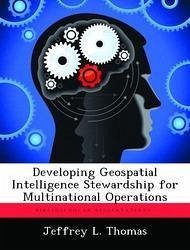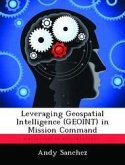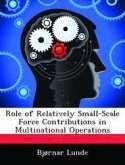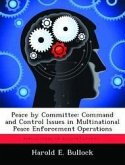In recent years the contemporary operational environment has increasingly included multinational operations, which have fault lines in understanding and visualizing the common operational picture. These fault lines are typically associated with national caveats, over-classification, releasability and interoperability issues. This research of Joint, Interagency, Intergovernmental and Multinational respondents stated geospatial intelligence (GEOINT) must be properly planned, released and executed for multinational operations to be effective. Results indicate that a higher level of cognitive comprehension of GEOINT and its application is needed for multinational operations. This requires effective stewardship of GEOINT wherein all participants are charged with the responsibility to properly develop, utilize and safeguard GEOINT, including its people, its property and its financial assets to maximize the effectiveness for GEOINT cells and commanders. GEOINT stewardship is not tied to specific systems architecture. The GEOINT cell is therefore able to adjust to the evolving character of conflict in order to better frame the problem. GEOINT stewardship enables users to apply critical and creative visualization to situational understanding, and provide context and orientation to solve ill-structured problems. The GEOINT cell must train and exercise this stewardship through a shared vision that will enhance their capability to effectively address multinational GEOINT requirements focus internal and external research and development efforts, pursue economies in acquisition, and develop approaches to improve information sharing.
Hinweis: Dieser Artikel kann nur an eine deutsche Lieferadresse ausgeliefert werden.
Hinweis: Dieser Artikel kann nur an eine deutsche Lieferadresse ausgeliefert werden.








